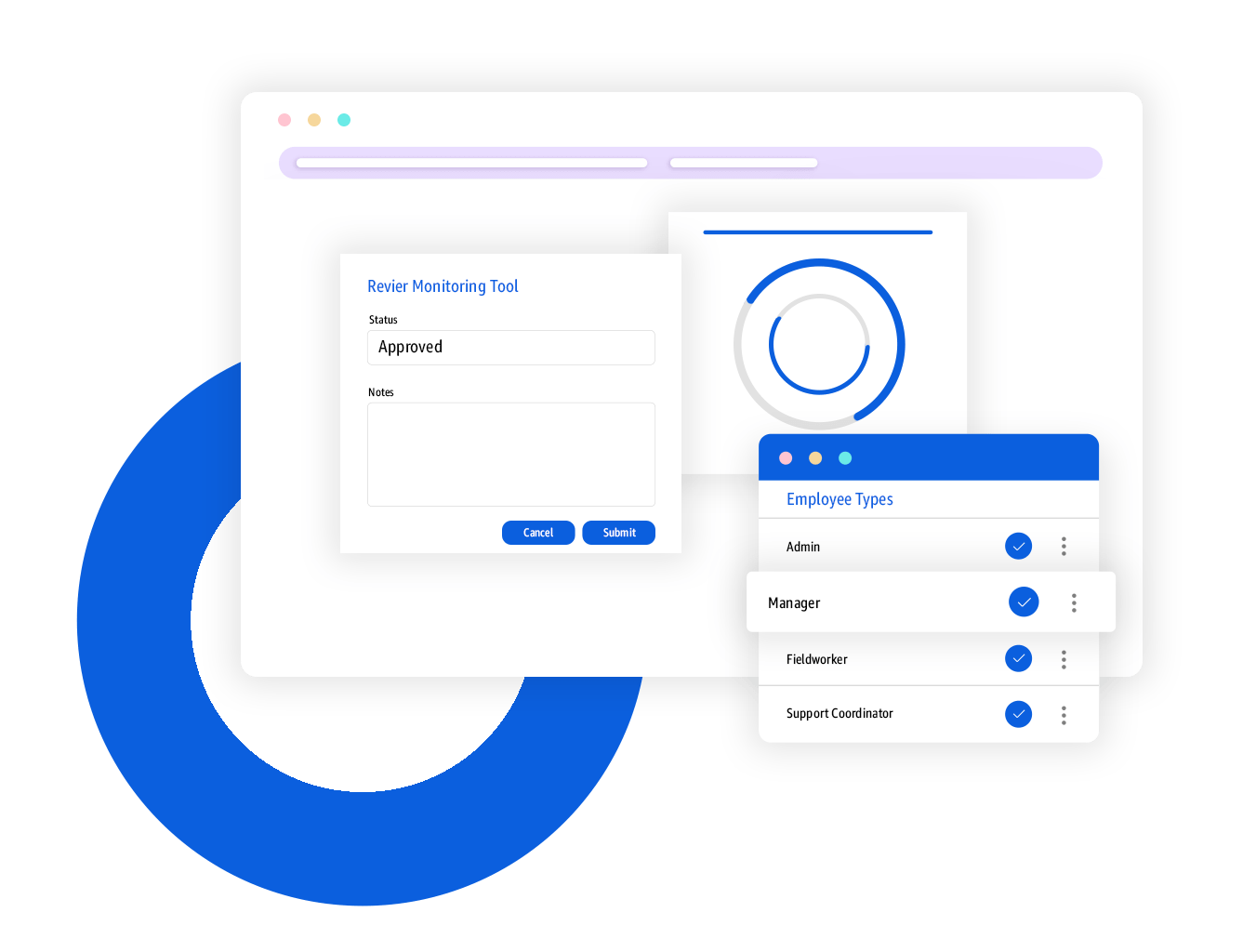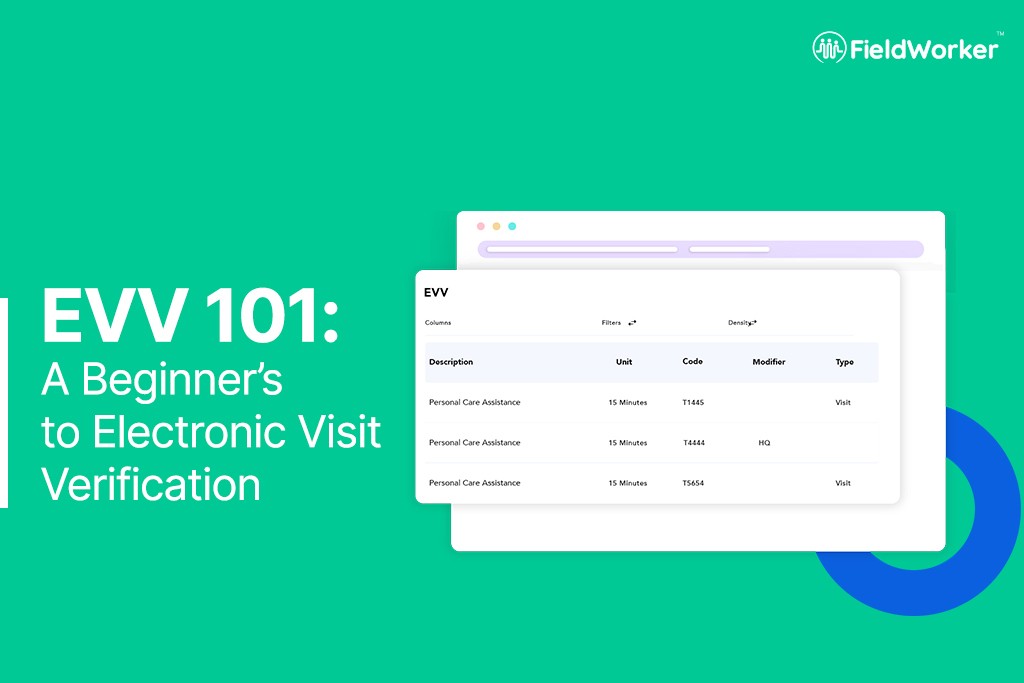Keep seeing the acronym “EVV” without fully knowing what it means? Let’s get you up to speed.
What is EVV?
EVV stands for Electronic Visit Verification. To put it briefly, it’s a method in which any visits carried out are recorded, and all relevant information captured.
What does this mean for social workers in practice? It means they have a way to record the details for each visit as proof. This proof can then be used for purposes such as billing and record-keeping for audits.
Ah, it’s about recording visits then. So what information does EVV record?
You might hear about information being “captured” as part of EVV. This just means that the information is recorded somewhere digitally and on file as proof that the visit took place.
There are six pieces of information required for an EVV record:
- The name of the care recipient.
- The name of the caregiver.
- The type of service provided.
- The date of the service.
- The location of the service.
- The start and end time of the service.
So even if “EVV” sounds a little abstract, you can see that the information it requires is pretty simple and basic – and likely is information you’re already keeping a record of.
That all makes sense, but why do we need a whole EVV system for this info?
There are a couple of core benefits to EVV.
EVV helps agencies ensure records are complete. Even in states where EVV isn’t a state-mandated requirement, EVV can help agencies ensure that all necessary information is captured, ensuring the accuracy of records.
EVV ensures patients are receiving the care they need. With complete records comes assurance that patients are in fact receiving the full extent of the care they need. As EVV even requires the start and end time, agencies can then make sure they’re spending the right amount of time with patients.
EVV cuts down on fraudulent activity. By requiring the recording of precise information, EVV can help ensure that all activity recorded has really taken place, and help reduce fraudulent reports which could in turn mean certain individuals go without the care they need.
EVV can improve Medicaid billing. By providing complete and accurate records, agencies can then have more confidence that their records are error-free, reducing issues further down the line when it comes to receiving payment from Medicaid.
More order, more efficiency, got it. So is EVV compulsory for my agency?
It depends on where you’re based. In some states such as New Jersey, EVV has recently been made compulsory. In other states, it is not compulsory, but may be soon. Even in states where it’s not mandated, many agencies adopt EVV for the benefits described above.
We recommend this list with a breakdown of the current status of EVV by state.
How does FieldWorker work with EVV?
FieldWorker makes it possible for your team to check in and out of visits with the touch of a button. When this button for a visit is pressed, all required information is recorded for that visit, meaning it’s effortless for records to be EVV compliant. You can learn more about EVV with FieldWorker here.
We’ve also recently implemented EVV logs for some states, where the states of EVV tasks sent to the state’s EVV aggregator is shown, in addition to any issues which can then be resolved.
Plus, our team has plenty of experience with EVV, having helped many agencies get set up and ensure they’re EVV-compliant. We’re always happy to discuss EVV and support you with the process – simply get in touch!
Additional Resources
Here are some additional resources we can recommend to learn more about EVV:
Official Medicaid guidance on EVV from Medicaid.gov
An alternative intro to EVV from Care Academy
EVV in New Jersey specifically from the State Department of Human Services

